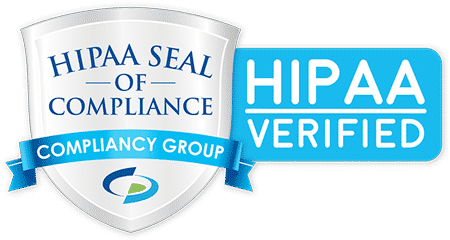
Cloud Managed Services and the Process of Cloud Migration
The “cloud” is a favorite buzzword in the technology industry, and for good reason. Migrating your assets and services to the cloud can have massive benefits for your organization. But when we stop talking about abstract concepts and start talking about practical steps, most people get confused.
So, what exactly is cloud-computing? How do you migrate to it? And what does migrating to the cloud look like? Keep reading to find out.
What Is Cloud Migration?
We’ll begin with a basic lesson on the cloud and cloud migration.
The “cloud” makes it sound like all your data and services are floating in the air somewhere, but in reality, it just means that your data, services, and IT resources are hosted somewhere offsite. Rather than being completely consolidated to your in-house servers, these things are stored in an external data center.
Migrating to cloud-based computing means taking your existing IT resources, applications, digital assets, data, and services and transferring them to the cloud where they can be more conveniently accessed and more securely stored. For many businesses, it’s a critical step to becoming more efficient, productive, flexible, and secure.
Are you interested in cloud managed services? Discover more about our cloud managed services here!
The Benefits of Migrating to the Cloud
Why should you consider migrating to the cloud?
Better Security
Some businesses choose to migrate to the cloud to enjoy better security. Instead of having all your assets and applications consolidated in a physical onsite server, they’ll be distributed and backed up on the cloud. No system is perfectly secure, and there are some security upgrades you’ll need to make, but, generally, companies that migrate to the cloud enjoy higher security standards.
Lower Costs
You might balk at the initial cost of migrating to the cloud, but cloud migrations tend to pay for themselves in the long run. They allow you to operate more efficiently and less expensively, requiring less ongoing maintenance and providing more streamlined resources. On top of that, you’ll minimize security risks, saving you from catastrophic losses associated with data breaches.
Flexibility and Scalability
The cloud is much more flexible and scalable, enabling you to add or remove resources as needed. This is especially important if you plan on growing your business in the near future.
Higher Accessibility
Another critical advantage of migrating to the cloud is enabling higher accessibility. Because all of your assets are distributed on the cloud, anyone with the properly authorized credentials can access them with an internet connection. This benefit is even more powerful for organizations operating remotely or with a hybrid workplace environment.

The Process of Migrating to the Cloud
Once you establish a cloud migration strategy, you can begin the process of migrating to the cloud. The exact steps required to take are going to vary depending on what you need to migrate, what your timeline is, and what kind of business you operate. But you can generally expect a process similar to the following:
Define Your Goals
Before you get too deep in the process, you need to define your goals. What are you trying to achieve with this cloud migration? What are your highest priorities? Do you need to guarantee consistent uptime? What is your timeline for the migration? How much are you willing to spend? You’ll probably need to make some compromises in these areas and others, so the better you understand your goals and priorities, the better you’ll be able to make these decisions.
Evaluate Costs and Risks
Next, take the time to evaluate the costs and risks of this migration. How much is it going to cost you to get everything you need online and readily available? What happens if the migration is delayed or if something goes wrong? You can compensate for most risks and reduce costs with strategic changes, so the higher your awareness is, the better.
Assess Your Current Environment
It’s important to take an assessment of your current environment. What assets and services do you currently have? Which applications are you going to migrate to the cloud? What are the key strengths and weaknesses of your current IT infrastructure?
Choose a Cloud Environment and Deployment Model
Most businesses choose to work with a night consultant to determine a cloud environment and a deployment model. There are many options available to you here, each with strengths and weaknesses, so it’s important to choose the right framework for your organization.
Choose the Right Partner
Unless you plan on doing everything in-house, it’s important to choose the right partner. Reliable cloud managed service providers will support you from the beginning to the end of your cloud migration, helping you plan the migration initially and following through after the migration is complete to make sure everything is in its right place.
Establish Migration Components and Performance Baselines
At this point, you’ll be ready to begin establishing migration components. It’s also important to establish performance baselines so you have clear targets to work toward.
Create a Detailed Migration Plan
Next, you’ll need to create a detailed and thorough cloud migration plan. Be sure to address every variable you can to maximize your chances of success.
Migrate Applications
With a plan in place, you’ll be ready to start migrating your applications, assets, services, and more. If you’re adequately prepared, this should go quickly and gracefully.
Review and Test
Once the migration is complete, it’s important to review everything in the cloud and test all your applications to ensure that everything is working as intended.
Managed Cloud Services and More
Migrating to the cloud is a big step to take for your business, and it’s one that can improve your efficiency, productivity, security, and more. But if you want to continue operating efficiently and truly maximize the performance of your organization, it’s a good idea to take advantage of managed cloud services on an ongoing basis.
Are you ready to begin your migration to the cloud? Everything starts here!

About Us
Since 2012, Net3 IT has offered enterprise-level IT experience and industry knowledge to help Knoxville businesses make the right decisions. We are committed to our customers’ success by providing cost-effective, high-value IT services, VOIP phone services, and strategic consulting.



